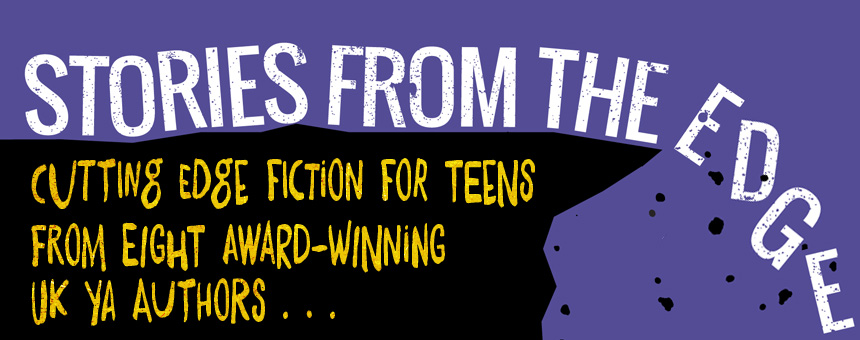 Sara: The teen years are when we begin to explore the meaning of life and come to terms with our own mortality. I remember writing some incredibly angst-ridden and frankly depressing poetry when I was a teen. It’s not surprising to me that teens gravitate to books with a darker slant.
Sara: The teen years are when we begin to explore the meaning of life and come to terms with our own mortality. I remember writing some incredibly angst-ridden and frankly depressing poetry when I was a teen. It’s not surprising to me that teens gravitate to books with a darker slant.
Paula: Feelings and responses to even minor events are so magnified when you’re a teen. I could certainly make a drama out of anything! But whilst it’s definitely a time to indulge your angst ridden side, aren’t the YA shelves in danger of showing teenage years as a time of doom and gloom? What about all the fun and excitement to be had? Often it’s a period when you find out what makes you really laugh. Alternatively, if you are having a tough time, you may be in need of a funny read. That’s why the publishers need to redress the balance and have more comedy and comedy drama books on the YA shelves.
Sara: I don’t think there’s an imbalance in what publishers are publishing but there may be a disparity in what sells. Teen noir is very popular. But even edgy fiction isn’t all dark and depressing.
Paula: I have a compulsion to lace everything I write with humour, no matter how dark. So even though my thriller, The Truth About Celia Frost, is tense and deals with serious matters there are characters and situations which, I hope, will bring a smile to the reader’s face.
Sara: Yes, edgy fiction doesn’t need to be depressing. I write dystopian novels and books like the Hunger Games have been very popular recently, but most of these books with dark topics have hopeful endings.
Paula: The HOPE factor is essential for me. Protagonists that are put through terrible ordeals need, at least, a glimmer of hope at the conclusion. As a writer and reader, when I go on a journey with the protagonist, I want to see them in a better place at the end of the story than they were at the beginning.
Sara: I’m also not sure that teens are alone in focusing on the macabre. Glance through the Sky Planner or the bestselling shelves of bookstores and you’ll see a significant portion of murder, death and mayhem!
Paula: You’re telling me and it’s not just fiction. In particular, book sections in supermarkets seem to be heaving with lurid ‘real life’ crime books or misery lit about abusive childhoods. There’s obviously a big market for adults who want to read nonfiction accounts of traumatic, violent stories. I suspect many teenagers find it easier to read about gritty and difficult subjects from the safe distance that a fictitious story affords.
Sara: I think fiction can be wonderful conversation starters. These dark books can offer teens and adults the opportunity to discuss important issues. Dark Parties touches on issues of diversity and human rights while The Truth About Celia Frost considers medical ethics.
Paula: It can be helpful and stimulating to readers when dark YA stories take on serious issues, as long as it’s not done in a preachy manner. However, I feel that it’s also important to have stories with great teenage comic creations. These are characters you can laugh at and laugh with; they can show you that you’re not the only one who does all those cringy, embarrassing things but the world won’t, in fact, end for you because you’ve made a prat of yourself. Don’t under estimate how comforting that knowledge is when you’re navigating your way through teenage years.
Sara: And before we get too lofty – these dark books are page turners and offer an escape from reality. I think maybe we need less judgment of teen’s reading choices and more acceptance for the diversity that’s available and also celebration for the fact that teens are reading!
Paula: I can’t disagree with that!
What do you think? Is teen fiction too dark and depressing?
- Paula Rawsthorne’s thriller THE TRUTH ABOUT CELIA FROST has won The Leeds Book Award 2012 (11-14 category) and was named one of the best teen books of 2011 by The Independent. www.celiafrost.co.uk
- Sara Grant’s debut novel DARK PARTIES -- a dystopian thriller for young adults – is published on the Orion’s Indigo imprint. Find out more about Sara and her book at www.sara-grant.com.


No comments:
Post a Comment